by Pip Howard
Caroline Spelman’s rhetoric for Rio +20 is increasingly worrying as it wanders further away from ‘Sustainable Development’ (SD), with even a not so subtle hint that it is an impossible dream and needs to be repackaged as ‘green economy’ or SDG+ (Sustainable Development Goals +).
What is a ‘green economy?’ This is fairly easy to define – it is using nature itself as a tradable commodity. There are many who will say it is much more complicated than that, but this is only in terms of how the transactions will be made.
We can and should place a monetary value on nature. Trees have long been valued for insurance purposes, valuing complete ecosystems for insurance purposes is a good step in helping to prevent further damage to nature without having to resort to heavy legislation. But this is far from what is being suggested, which is in fact more concentration on ‘offsetting’ both Carbon, (bolstering up the heavily flawed, ethically dubious and very corrupt systems already in place), and now Biodiversity also.
The ‘green economy’ of Spelman et al., will work like this: if you are a developer keen to build on a green field site or you are a large corporation seeking ‘green publicity’ by way of reducing your carbon footprint, you will be provided with a choice of location to offset biodiversity in the first instance or carbon in the second. Who will broker such offsetting – the non-government organisations (NGOs). Hence the reason many NGOs are reticent to criticise and even openly applaud the ‘green economy’ proffered by Spelman and others, which unfortunately seem to include the vast majority of policy makers attending Rio +20.
The general platform for discussion at Rio +20 is simply heavily dressing up such proposals by twisting the kind of language we have had more than 30 years to get used to. This is not ‘Greenwash’, it is much more frightening than that – it is a definitive stance to prevent any real attributes of SD ever moving forward to ensure that the financial sector, who have so far failed to protect the economy and the NGOs, who have so far failed to protect the environment, still remain in charge.
The social aspect of SD is largely missing, some are using heritage in its place, some are honing in on the rights of indigenous peoples – but we are all in this respect indigenous people fighting to protect our cultural heritage. We all have a right to our landscapes. The landscape approach is the key to realising the social element desperately needed to redress the unfair balance between the three essential tiers of SD (Economic, Environmental and Social,) but this is deliberately ignored.
SD is not just possible, but is working in many places and unsurprisingly it’s working in places where little intervention by Government (working from much nonsense spouted by Think Tanks, and NGOs) has occurred. It is working also where little ‘growth’ has ever been seen before but where rapid economic growth has started to happen. But instead of understanding and harnessing that knowledge, they want to steal it and sell it.
Bottoms Up
There are two ‘bottom up’ approaches needed, which are interconnected; the ecology and the landscape.
We have to get used to the fact that merely protecting the flora and fauna we can see and love is not enough. We have to look at the soil & water. The most basic life cycle (we are all taught at primary school) proves this importance: Sunlight helps plants grow and animals to prosper, they die and create soil, which helps more plants and trees to survive. Ignore organisms in the soil, ignore the need to get water to ground and ignore existing trees or plants anywhere in the world and the cycle collapses – the only way to save biodiversity is to protect every link in the chain. And people are very much a part of this cycle. It is farmers, foresters, other land management practitioners and the general population in their landscapes, who manage soil, manage the plants and animals – and it can be done so that carbon is sequestered back into the soil, improving water quality, increasing biodiversity in the soil and making a landscape more productive as well as more aesthetically pleasing.
But such people are not even considered as stakeholders by policy makers, but there are many organisations and NGOs who are happy to call themselves stakeholders and purport to speak on behalf of these people.
They enjoy huge earnings which place them outside the reality the rest of us live in and if we pay into such organisations we become shareholders in the transfer of the very biodiversity we need to get on track with sustainable development.
At Rio+20 the interests of real people is being ignored in favour of subsidising a failed system and in doing so help towards an irreversible system where not only everything can be traded under a false belief that this mitigates against climate change or biodiversity loss, but where we lose any and all rights to speak, manage and participate in realising true sustainable development.
We people in our place or working on the land in our UK landscape, can without hypocrisy stand up and shout for the same things alongside the indigenous groups and others currently in Rio lobbying for their rights:
‘It is our landscape, we know it, we know how it works and how it can be improved. We can give you sustainable development, but it cannot be taken away from us.’
Read more articles by Pip Howard: http://saveourwoods.co.uk/?s=pip+howard













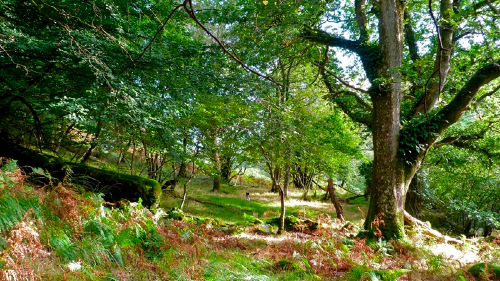
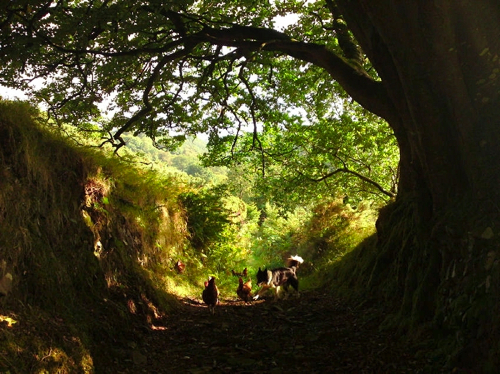


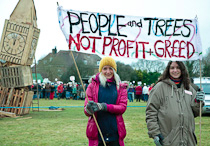


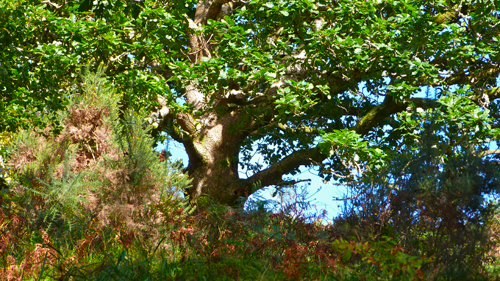
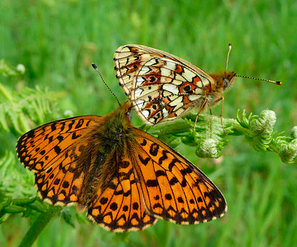





A multitude of self proclaimed sustainability experts are now in a panic as they finally and after many years of security have hit the wall, as you say they have failed. They bring no answers to the problems we face and can only turn to spin that Blair himself would gulp at, arriving to tell us how to achieve SD with a straight face in a nice car, nice suit and nice watch… “Ahh! that sounds exactly like what Bill, Jill or the new couple at the old mill are doing”. “No, no, no” is the reply and a slide of why we must pay into some controversial scheme on the other side of the world appears. This is their solution to protect a way of life, their own way of life irrelevant to those of us, the majority, who sit and enjoy our communities in our chosen or inherited place. I worry when the charities I once paid into tell me contradiction after contradiction without apology, the message is clear “we will follow the £’s”.
Excellent, thank you.
One positive outcome from the glorious failure achieved at Rio is that we can now weed out the colloboraters of this disgraceful PR stunt. Anyone from governments, ngos and business leaders who refers back to Rio + 20 should simply be ignored.